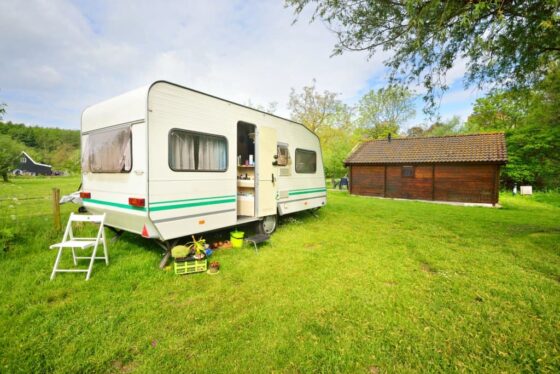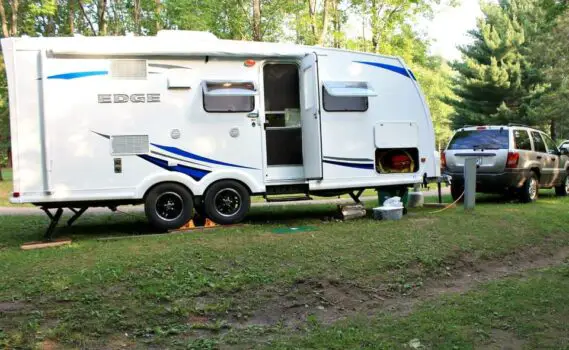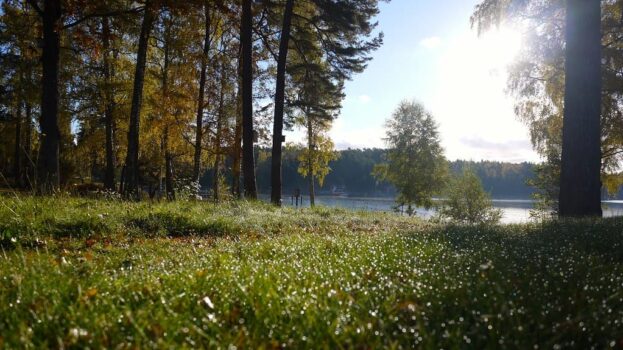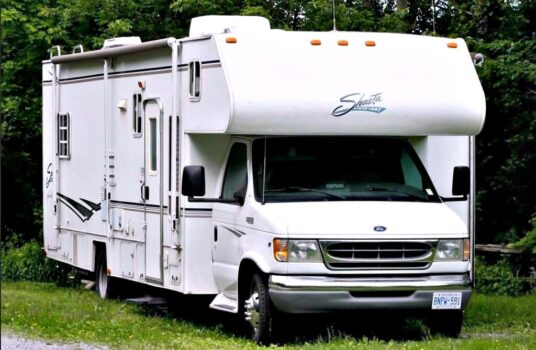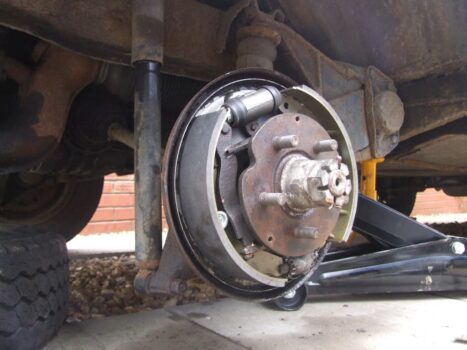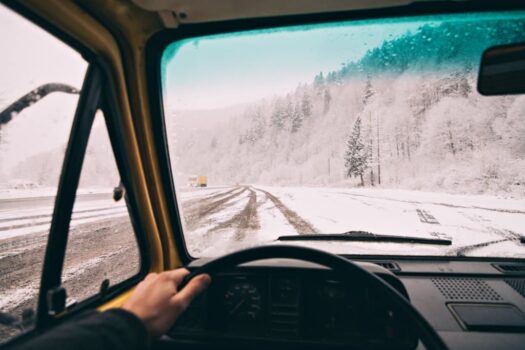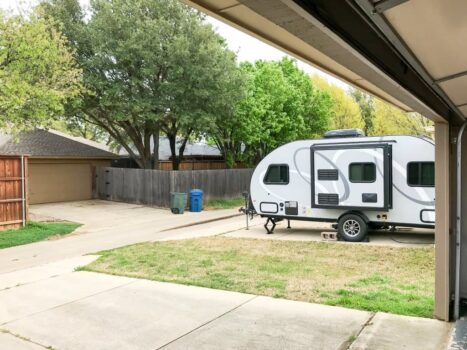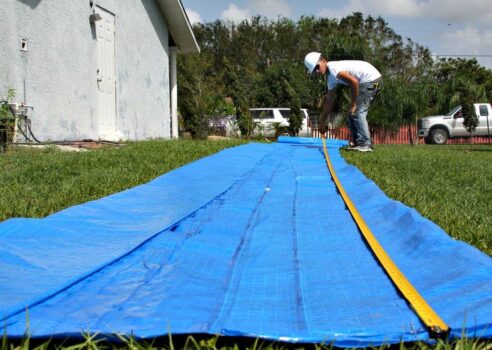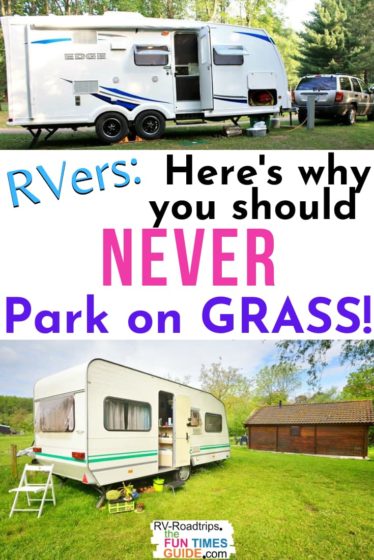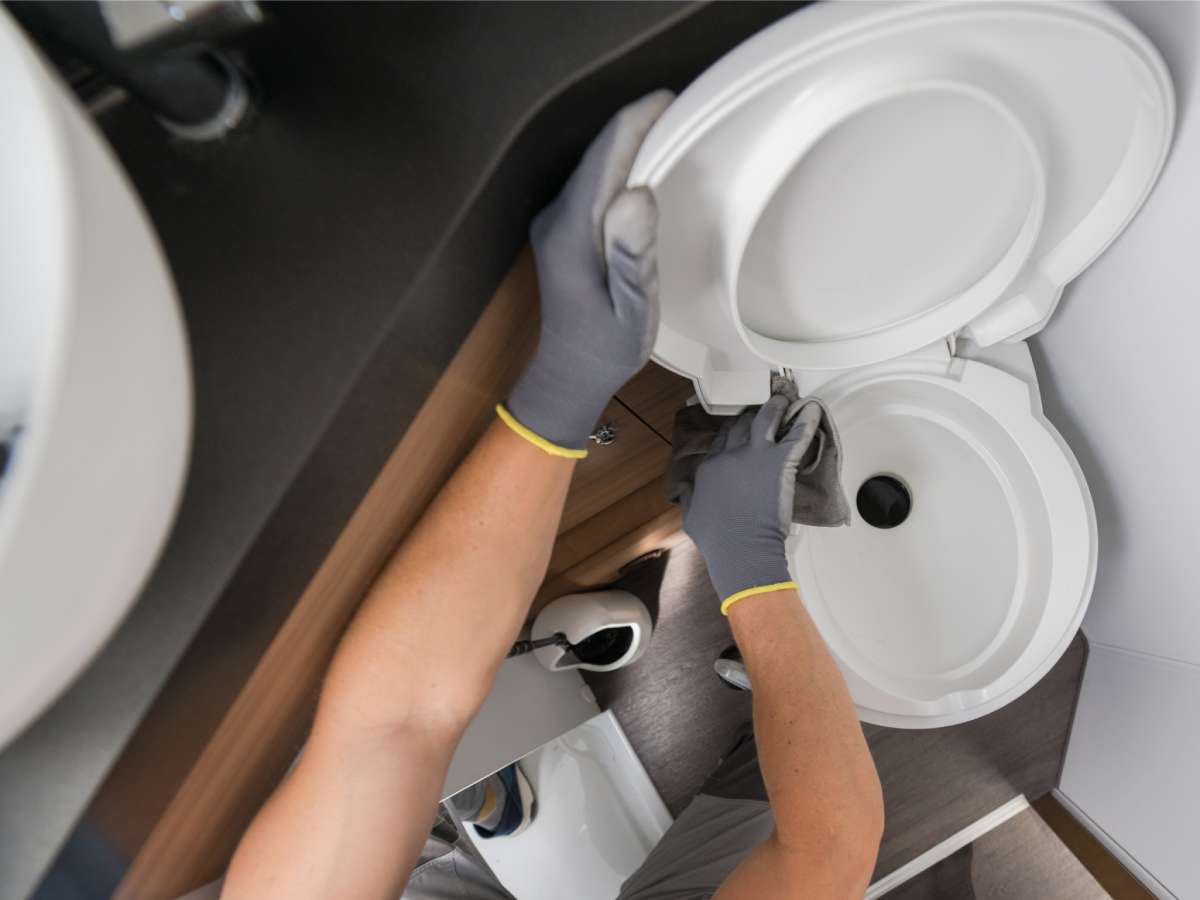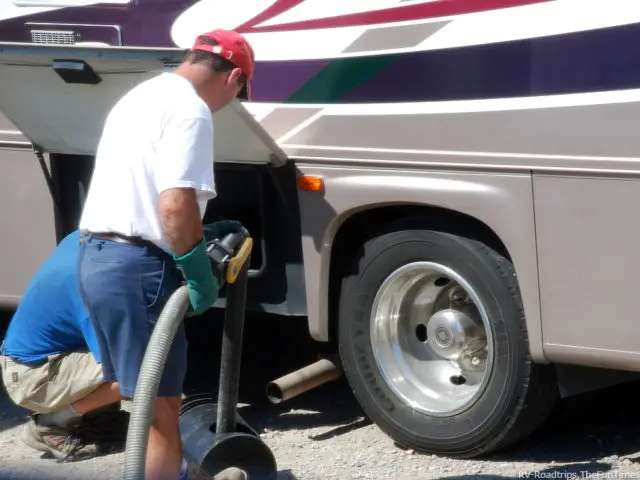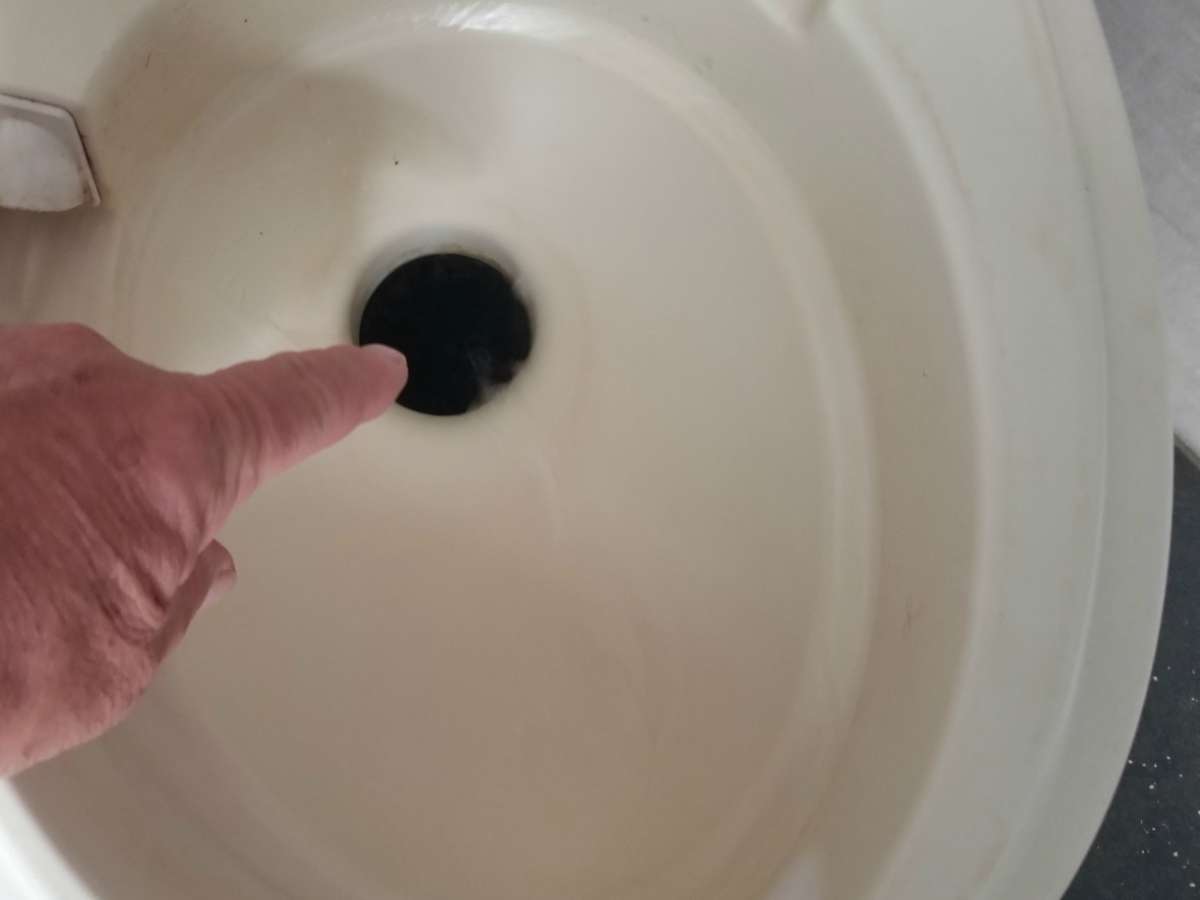Imagine a sunny spring day. The first rays of sunshine are just poking through the trees, causing the heavy morning dew that has collected on your yard overnight to sparkle and glisten.
On the far side of the yard sits your RV — patiently waiting for your next outing to the wilderness.
It’s been awhile, your escape pod has been left to sit for more months than you care to count. The day will come that you hitch up expecting to roll out onto the highway only to find that your trailer brakes (or motorhome brakes) no longer function.
In fact, they have rusted so solid that moving your RV at all is no longer possible!
How does this happen?
The first question I would ask is, “Was the RV parked on the grass?”
Here’s why parking your RV on grass is a bad idea…
Parking on grass leads to rust!
Hang tight — I have some good alternatives for you.
How Rust Forms On RVs Parked On Grass
This is how it happens…
Morning dew is the result of atmospheric condensation.
When one item (the grass) has cooled off to a lower temperature than the other item (the ground), then moisture droplets form on the cooler item.
And… since grass is only an inch or so higher than the dirt, and your expensive RV rests a foot or two higher off the ground, the grass has gotten even cooler throughout the night.
Guess what happens?
The moisture will condense on every metal surface available — both visible and hidden.
As a result, your RV’s frame, suspension, and drive system will be damp.
Also, inside your brake drums (or on brake discs) moisture will have collected. That moisture will immediately start turning things like shiny brake rotors and pads to a rusty color.
Brake shoes and drums will suffer the same expensive fate.
No matter what kind of brakes you have, there are moving parts involved that will steadily get stiffer until at some point they will no longer function. RV suspension will get squeaky and stiff — until it feels like you have a rock with no flexibility. Just like arthritis, your RV will become stiff and old before its time.
As rust builds up on the frame of your RV, metal will eventually flake off in scales as your home on wheels literally dissolves in front of you.
All of this is made horrendously worse if your RV has ever traveled in the snowbelt on roads that have been treated with salt.
Does this type of damage happen overnight?
No — but many RVs spend months on end without being moved. It’s during long-term storage while being parked on the grass that repeated doses of condensation will give rust a foothold.
Once rust has established itself, it needs to be stopped quickly before it takes over like termites to a wood structure.
How To Remove RV Rust
If the damage is already done, and now you’re dealing with a rusty undercarriage or RV frame — what should you do?
There are a variety of rust stopper treatments available that will take care of mild cases of rust that haven’t yet destroyed structural items on your RV. If caught in time, this can save your RV from total destruction!
For minor RV rust issues that you want to touch up cosmetically, you can use a product like VHT Rust Converter or Rustoleum’s Professional Grade Rubberized Undercoating Spray.
This video reveals all the key places you should look for rust to appear:
Better yet is to be proactive and prevent the damage altogether.
Here’s how…
3 DIY Parking On Grass Solutions
So now it’s clear that you want to avoid longterm RV parking on grass, right?
The key is to install a quality parking pad to eliminate the danger of RV rust damage.
You have a few options. I will list them each here — with the best option first:
#1 – A poured concrete slab is the best. Have it located so that water does not pool on top of it and so runoff is directed away from the area. Here’s a good tutorial.
#2 – Lay a washed gravel pad. First, remove the sod, lay the gravel, and then place a layer of heavy black plastic down on the ground. The plastic should be slightly sloped — so any water that penetrates the level washed gravel will run off of the plastic. Good runoff is key to keeping your gravel pad dry and weed-free.
#3 – At the very least, lay a heavy plastic tarp. Simply remove the sod from your chosen parking spot, and stake down a layer of heavy black plastic. Again, there should be enough slope to allow water to quickly run off the plastic. The plastic will keep weeds away from under your RV and the dark color of the plastic will absorb sunlight — drying much quicker than exposed dirt after rain or any other moisture.
The Bottom Line
You may wonder why your daily driver car doesn’t dissolve away faster than the RV when parked on grass.
The reason is because your car gets used every day — keeping the joints moving and the mechanical systems functioning.
The worst thing for any mechanical device is to let it sit, unused. The years roll by, faster than we can keep up. And before you know it, nothing works as it should.
Now’s the time to get out there and enjoy your RV — before it gets a bad case of arthritis!
TIP: Whenever I’ve shopped for used RVs, the first thing I do is look underneath for rust. Since rust seldom shows up on RVs out west, I’ve always looked for California rigs for just that reason.
Like this post? Save it to read again later… or share with others on Pinterest!

